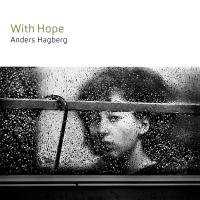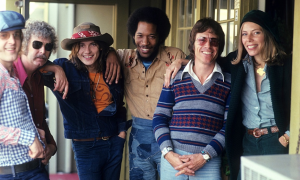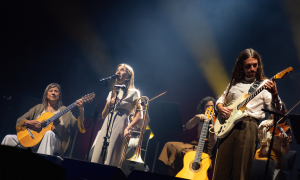Home » Jazz Articles » Profile » Lawrence Killian
Lawrence Killian
Lawrence Killian's drums talk, harkening back to the days in Africa when the drum was played as a form of communication, giving lightning power to communal dances.
Born September 5th, 1942 in Jersey City, Killian's uncle Al played trumpet with the legendary Ellington orchestra during one of its finest periods and his father Rollie was a postman who sang and played guitar with Sy Oliver. Although encouraging his musicality, Rollie made sure that his son developed a trade to fall back on, so Killian would later study to be an electrician. Starting on a silver trumpet at the Glenfield School in New Jersey, he played in the band and also the drum and bugle corps. Attracted to the snare drum, he joined the Blue and Gold Marching Band. Killian then started playing the trap drums with saxophonist Lloyd Wheeler and Jimmy Anderson. He played in all the local bars, though he eventually joined the Coast Guard as an electrician.
Killian's first major gig was with vibraphonist Johnny Lytle, during which he would become friends with Roy Haynes and Freddie Hubbard, both of with whom he would later play. Killian was percussionist of the original Roy Haynes Hip Ensemble with saxophonist George Adams, trumpeter Hannibal Marvin Peterson, pianist Joe Bonner and bassist Cecil McBee—all except Adams destined to play with Pharoah Sanders, one of Killian's greatest jazz associations.
It was at the Blue Cornet that McBee invited Sanders to first hear Killian. He would go on to record with Sanders on the seminal albums Thembi (on one track never properly credited in discographies) and Black Unity. It was during this time, while playing free music, that Killian furthered his relationship with the drum as an ancient talking spirit.
An outgrowth of Sanders' band in the '70s was Lonnie Liston Smith's Cosmic Echoes whose spare electronic piano style brought in a new era of light, cosmic funk. This experience included trips to Japan and more recordings in nearly half a dozen years.
At this time, he also played with two of the most famous men in jazz: Stan Getz and Miles Davis. When Killian was still playing with Sanders, Miles eased into a club undercover (similar to Pharoah), but finally made it known that he wanted Killian to play in the wild fusion band that also had percussionist Mtume, Michael Henderson (bass), Keith Jarrett (piano), Tiki (drums) and Gary Bartz (alto sax). Killian played at the sessions for the exploratory funk album On the Corner (though those particular takes have never been released) and did gigs with Miles at the Village Gate, Lennie's on the Turnpike and at the Jazz Workshop.
After playing with Rahsaan Roland Kirk and pianists Hilton Ruiz and Ahmad Jamal, Killian crossed genres and joined the rock-disco band The Village People which led to a five year stint, some good money and hits like the song, "YMCA .
His friendship with Johnny Lytle led to a positive connection when Pucho (of Latin Soul Brothers fame) was putting together a tour. He asked Killian to play congas in this working Latin band. Killian gladly accepted and played extensively with Pucho in the '90s, leading to the CD Groovin' High.
It was at this time, that Killian and I formed our first band and what is now a 17-year friendship. I had a steady gig and percussionist Leopold Fleming was called away to play with Nina Simone. When he said he would send a sub, I had no idea that this wonderful man with powerful forearms and razor sharp time would end up playing for the entire summer.
After over 20 years as a fireman, Killian is still teaching and playing at William Patterson College with Chico Mendoza. He meets a lot of young kids that want to be quick stars these days, but his advice to them, knowing that jazz is a complex art form is to: "Listen! Listen! and practice! ...Amen.
Selected Discography
Larry Coryell, Barefoot Boy (Flying Dutchman-One Way, 1971)
Pharoah Sanders, Live at the East (Impulse, 1971)
Roy Haynes, Senyah (Mainstream, 1972)
Lonnie Liston Smith & The Cosmic Echoes, Cosmic Funk (Flying Dutchman, 1974)
Cecil McBee, Mutima (Strata East, 1974)
Big John Patton/John Zorn, Blue Planet Man (Evidence, 1993)
Tags
PREVIOUS / NEXT
Support All About Jazz
 All About Jazz has been a pillar of jazz since 1995, championing it as an art form and, more importantly, supporting the musicians who make it. Our enduring commitment has made "AAJ" one of the most culturally important websites of its kind, read by hundreds of thousands of fans, musicians and industry figures every month.
All About Jazz has been a pillar of jazz since 1995, championing it as an art form and, more importantly, supporting the musicians who make it. Our enduring commitment has made "AAJ" one of the most culturally important websites of its kind, read by hundreds of thousands of fans, musicians and industry figures every month.
























